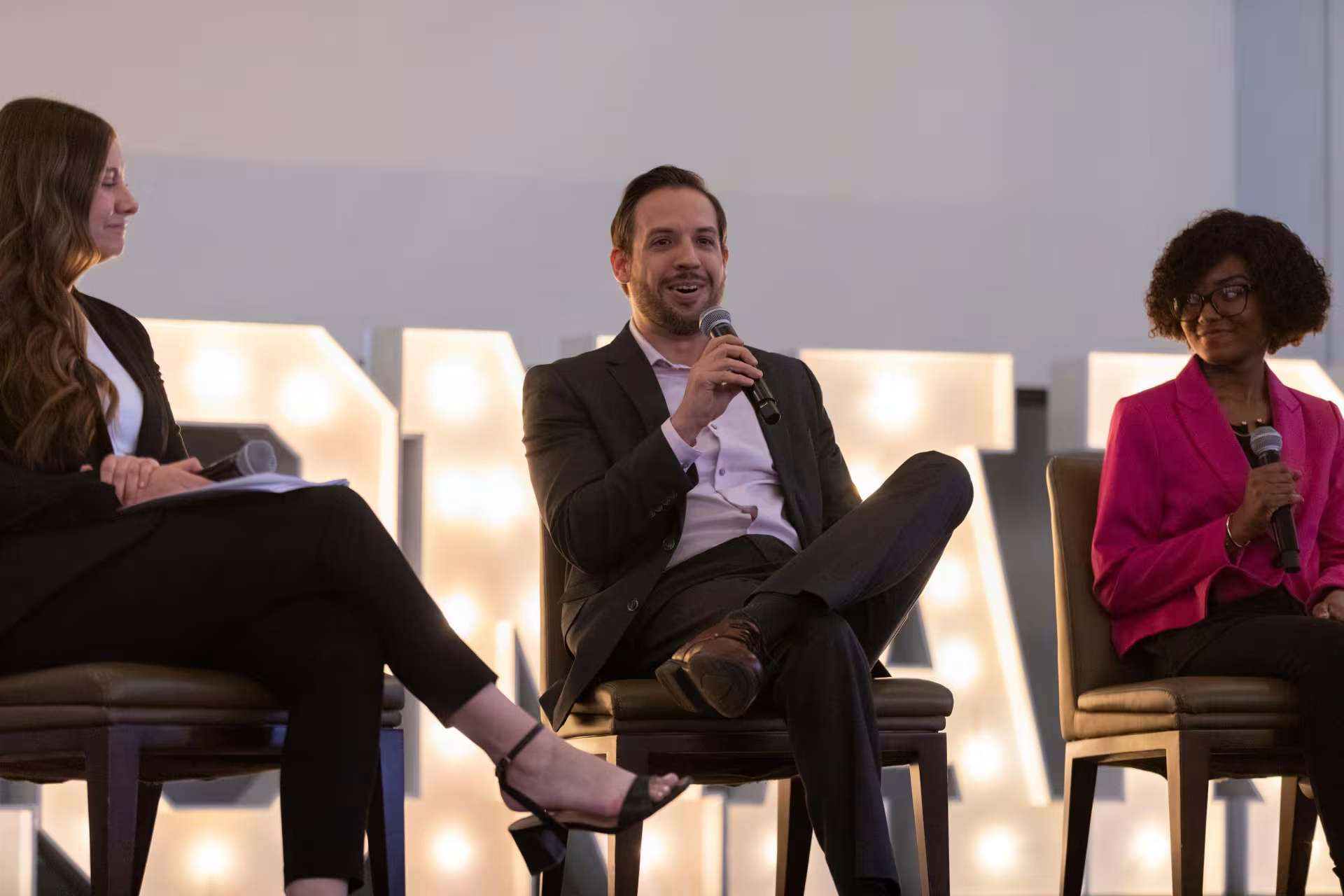
Starting a PhD is a significant commitment that requires focus, resilience and planning. This guide offers practical tips for current and future doctoral students on how to prepare for a PhD, featuring insights from Dr. Jennifer Waldschmidt, dissertation program chair at Grand Canyon University. It covers strategies for staying motivated, managing research and building relationships with faculty, helping you to move forward with clarity and confidence. Keep reading for advice on how to be a successful PhD student.
What To Consider Before Applying to a PhD Program
Before applying for a PhD, take a moment to reflect on your career goals and readiness. Dr. Waldschmidt emphasizes the importance of asking, “Why do you want the degree?” This motivation, whether for personal fulfillment, career advancement or expertise, should guide your decisions. Defining your “why” early can help you stay motivated and on track.
What To Expect in Your First Year as a PhD Student
The first year of a doctoral program includes foundational courses, research exploration and relationship building with faculty and peers. At GCU, students begin by taking four research courses alongside content-specific classes, such as psychology, depending on their program. “They’re really starting to figure out what research is,” says Dr. Waldschmidt. “They’re considering their topic, deciding whether a qualitative or quantitative approach fits best and choosing the most effective path forward.”
Academic Success Strategies for PhD Students
Ultimately, earning a PhD isn’t about being the smartest person in the room. “It’s more about grit and perseverance than it is about intelligence,” she says. Through dedication and resiliency, students can emerge with a transformed perspective, not just a degree.
Below are key strategies for PhD students to maintain focus, productivity and resilience.
Shift Your Mindset
Thriving in a PhD program requires more than intelligence, it demands discipline, strategy and a proactive mindset. As Dr. Waldschmidt emphasizes, success hinges on consistency, intentional effort and personal transformation.
This shift isn’t easy. According to Dr. Waldschmidt, our brains are wired to rely on shortcuts — efficient patterns of thought that work well in everyday life but often fall short in the context of doctoral-level research. When those familiar ways of thinking no longer serve us, students often hit a wall of frustration known as cognitive dissonance. “It’s just not working like it’s supposed to,” she says. “But there’s a reason for it, and the reason is we need to change how you think to become the doctor.”
Build Strong Relationships With Faculty and Mentors
Building strong relationships with mentors and embracing feedback are essential. Your advisor and committee are allies, so schedule regular check-ins, solicit feedback and remain open to constructive criticism. Communicate openly and don’t hesitate to reach out for help, as faculty genuinely want to see you succeed. Take feedback, apply it and use it to strengthen your work.
Waldschmidt shares, “We use the acronym QTIP — Quit Taking It Personal. The feedback is not a personal attack. We are trying to make you a scholar because you're moving from student to scholar.” But becoming a scholar also means learning to stand your ground. “Don’t be afraid to defend your work,” Dr. Waldschmidt advises. “If you are pretty confident in your stand, don’t be afraid to defend it, respectfully, but stand up and become the scholar.” That balance of humility and confidence is key to building strong, respectful relationships with your mentors.
Because doctoral mentorship often spans years, building trust and connection is essential. “I wear many hats — I’m the chair, I’m the cheerleader, I’m the accountability person,” she says. That relationship thrives when students are open, receptive, and bold enough to ask questions and advocate for themselves.
Study Literature and Develop a Consistent Writing Routine
Writing is a central component of the process. Establish a weekly writing routine, using tools like outlines, writing groups and productivity apps to stay organized. Remember, writing involves grounding your ideas in existing literature, not just about putting words on a page.
As Dr. Waldschmidt explains, “Staying in literature is really big, becoming an expert in the field, and that starts from year one. The better you know the literature, the better you can defend your position.” Citing established scholars bolsters your argument and connects you to the broader academic discourse. As you build your writing habits, make literature review a regular part of your process; it’s your best defense and your foundation for credibility.
Stay Motivated and Engage With Your Academic Community
Dedicate time to focused academic work. As Dr. Waldschmidt puts it, “Making sure that you're consistent in working on your class and/or your dissertation — we recommend at least 20 hours a week where you're really focused on progressing.” But time alone isn’t enough. Success in a PhD program also requires grit, and what she calls “stick-to-itive-ness.”
“Just keep going and don't take feedback personally. Think about the why and then make sure that you're focused on setting yourself up for success to obtain that why by the time that you get to the end.”
-Dr. Waldschmidt
Use the Resources Available
GCU offers resources to support doctoral students, integrating dissertation work into their initial courses. The College of Doctoral Studies provides tools, such as the Doctoral Community (DC) Network and companion guides, that offer step-by-step strategies for each dissertation chapter. As Dr. Waldschmidt puts it, “Dig into the resources, use the resources.” With citation managers, research logs, writing centers and faculty office hours, students are encouraged to be proactive: “Use the support systems built into your program.”
GCU doctoral programs also offer events to keep students engaged and informed. These sessions offer opportunities to ask questions, gain clarity and learn from those further along in the program. “Even if you're just there to listen, you get a ton of information,” she adds.
Plan Your Research and Writing
Research and writing are the backbone of a successful PhD program. Developing a clear research plan and a well-structured dissertation involves discipline and strategy. Setting short-term and long-term goals helps track progress.
To stay organized, break the dissertation into manageable phases:
Set realistic deadlines for each phase to maintain momentum. The dissertation is a tool for reshaping thought. Through deep engagement with literature, critical analysis and scholarly writing, students learn to defend their ideas with evidence rather than instinct. “You can’t rely on your own expertise,” Dr. Waldschmidt notes. “You have to actually quote people and go back to literature.”
Intentionally Plan and Execute Your Dissertation
Doctoral students at GCU select their own topics independently. “It’s not someone saying, ‘Hey, go do this.’ You get to choose what you want to work on, as long as it aligns with your degree,” says Dr. Waldschmidt. Effective research starts with clarity and purpose.
Before collecting data, students should:
Dr. Waldschmidt suggests how to choose a topic. “Let’s say they’re in a field with a lot of retention issues. They might study retention with their dissertation to become an expert in the topic, then use their degree to move forward in their career.”
She encourages students to choose topics they’re genuinely curious about, but not overly biased toward, to maintain scholarly objectivity. “Find something that will help them reach their why and then start digging into literature,” said Waldschmidt. She also frames research as a narrative craft: “You get really good at telling a story. It’s all about how you spin it.” Immerse yourself in literature to help justify your topic and build a strong scholarly voice.
Review Previous Dissertations
Reviewing previous dissertations can help you understand academic expectations and elevate your work. Waldschmidt encourages students to learn from those who have completed the journey: “Read some dissertations to see what is expected because these folks have graduated.”
The DC Network provides access to GCU dissertations and theses, offering valuable insight into current research standards and topics. “Let’s say that you wanted to study burnout. You see dissertations that have burnout in them, published this year,” Dr. Waldschmidt explains. “I would recommend starting with some of these and reading to go, OK, where do I need to be?” While every dissertation is unique, shaped by its topic and the specific expectations of each committee, reviewing past work offers a benchmark for planning and refining your writing.
Consider AI for Scientific Research
Artificial intelligence is revolutionizing research and can aid PhD students in starting their dissertations. However, it’s essential to use reputable tools designed specifically for academic inquiry, such as Elicit AI, which Waldschmidt recommends as a helpful starting point.
Elicit allows users to input a research question and access relevant, peer-reviewed articles. For example, Dr. Waldschmidt explored the stressors for online dissertation learners and found valuable studies on instructor roles and course design. While Elicit can enhance literature reviews and help identify research gaps, Dr. Waldschmidt emphasizes the importance of thorough research and scholarly rigor.
Prioritize Your Mental Health
Maintaining your mental health is as important as meeting academic milestones. The demands of research, writing and deadlines can take a toll, making it essential to prioritize well-being. Self-awareness and intentional care are key. As Dr. Waldschmidt notes, “You can’t pour from an empty cup — take care of yourself so you can do your best work.”
Avoid Burnout and Find Balance
PhD programs can lead to burnout if not appropriately managed. Establish routines that include breaks, physical activity and screen-free time. Recognize the signs of burnout, such as fatigue and irritability, and address them with compassion. Dr. Waldschmidt urges students to “be gracious to yourself.” Prioritize your mental health and maintain connections with family and friends. “If all you pour into is a dissertation or your coursework, that’s not necessarily good either,” she warns. Sometimes, the best decision is to take a break, as burnout is not a sign of failure but a signal to pause and recalibrate.
Imagine Your Tomorrow
Pursuing a PhD involves long nights and personal growth that lead to breakthroughs. Dr. Waldschmidt describes the shift vividly: “You get to the point where they’re on the back end and they’re engaging you in this incredible conversation. By the time they graduate, they’re citing studies, referencing authors and building arguments with clarity and depth.” When the work feels heavy and the path is long, remember who you’re becoming. The journey is worth it.
"I have a student who said, ‘It’s amazing how far I’ve come from year one to year three.’ And I told her, wait until you finish — you’ll look back at this time and be amazed at your transformation.”
— Dr. Waldschmidt
The Doctoral Experience at GCU
GCU offers a doctoral experience focused on mentorship, collaboration and academic excellence. Students can benefit from dedicated faculty and resources, such as the Center for Innovation in Research and Teaching and the DC Network. Doctoral residencies offer immersive in-person experiences for networking, hands-on learning and feedback. The Dissertation Intensive Writing Retreat offers targeted coaching for dissertation development. The program emphasizes academic guidance and personal empowerment, encouraging students to take ownership of their research and develop leadership skills.
If you're inspired to pursue your doctorate and looking for a program that combines academic rigor with personalized support, GCU offers a doctoral experience designed to help you. With access to knowledgeable faculty, collaborative residencies, and the DC Network, GCU strives to equip you to make an impact in your field. Whether you're just beginning to explore your options or ready to apply, now is the perfect time to learn more. Explore GCU’s Doctoral Programs and discover how you can complete your degree with confidence.
Explore strategies to navigate your doctoral program with confidence with knowledgeable advice.






